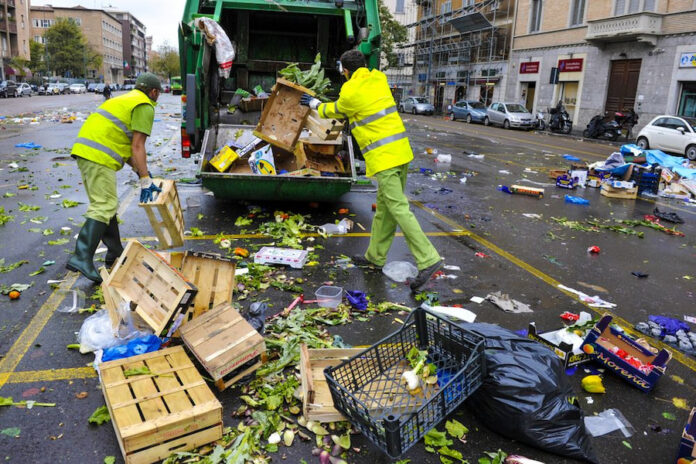By encouraging effective waste disposal, reuse and recycling, and a reduction in the usage of landfills, efficient garbage laws are essential to the creation of greener cities. There will be less litter, cleaner streets, and better air conditioning due to these rules, which will encourage companies and locals to embrace environmentally friendly procedures. Skip Hire services help in this endeavour by providing practical and reasonably priced garbage management options. Through their services, businesses and consumers may dispose of waste ethically and ensure that recyclables are handled correctly. Cities can drastically cut pollutants and make the natural world cleaner for everyone by enforcing garbage regulations and making use of services like Pink Skip Hire.
Promoting Appropriate Waste Segregation
Effective waste management practices encourage the separation of trash at the source into recyclable, non-recyclable, and organic groups. It is simpler to process and recycle materials when companies and households are obliged to put away their garbage. Reusable materials are guarantee to be contaminant-free by proper isolation. This guarantees that waste is dispose of properly, reducing the amount of waste that ends up in cemeteries and keeping cities healthier.
Diminishing Dependence on Landfills
Reducing the quantity of waste added to cemeteries is one of the fundamental objectives of modern-day waste control. Waste dumps are infamous for drawing rodents, freeing toxic gases like methane, and contaminating aquifers. Municipalities can reduce their dependency on fossil fuels with the aid of enacting laws that prioritise the conversion of waste into the technique of composting and recycling.
Encouraging Recycle Programs
Recycling is essential to maintaining healthy towns. Recycling-focused trash regulations, which encourage citizens and businesses to recycle materials including paper, glass, plastic, and metal, help communities handle garbage more efficiently. The quantity of waste that ends up in streets and landfills is decrease by government-mandate recycling initiatives, which guarantee that these substances are dealt with and repurpose. Recycling remains a mainstream habit and leads to cleaner communities.
Encouragement of Composting Projects
Most of the waste produced in communities is compose of organic materials. Composting programs are a common component of effective waste management practices, especially when it comes to food and yard waste. In addition to lowering the quantity of trash dump in garbage dumps, decomposition creates useful compost that may be used to enhance soil quality in urban green spaces. Composting programs lead to cleaner cities by eliminating food waste from streets and garbage dumps, reducing odours, and supporting urban agriculture.
Putting Waste-to-Energy Programs in Place
Schemes known as waste-to-energy (WTE) transform non-recyclable garbage into power, typically in the way of thermal energy or electrical. These initiatives offer an environmentally friendly power source in addition to lowering the amount of waste that is sent to cemeteries. Cities can profit from a cleaner energy source and lessen the impact on the environment by putting waste into energy legislation into place. By doing this, waste is effectively handle and kept off of municipal roadways and sidewalks.
Tightening Rules Regarding Hazardous Waste
If not properly disposed of appropriately, dangerous waste—such as chemicals, batteries. And electronics—poses serious dangers to the planet and the general population. More stringent rules and procedures are establish by effective trash programs to ensure that hazardous waste is handle, collect, and dispose of safely. These regulations prohibit the publication of toxic substances into urban areas, keeping cities cleaner and protecting residents from potential health hazards.
Promoting Public Involvement
Waste management strategies cannot succeed unless the public is inform and actively involved. Communities can encourage companies and citizens to adopt more environmentally friendly waste disposal techniques by funding outreach initiatives, seminars, and information initiatives. Individuals are more inclined to follow rules when they recognise the value of recycling, composting, and appropriate trash disposal. An educated and engaged public leads to healthier cities.
Implementing Laws for Litter Control
An important source of urban pollution is garbage. Strict trash control rules that penalise irresponsible garbage disposal are part of effective waste management strategies. Cities can prevent pollution by imposing fines and consequences, which will make parks, streets, and other communal spaces cleaner. Cities can also install greater accessibility to trash cans. And increase waste collection services to make it easier for people to dispose of their waste properly.
Final words
Cleaner, happier cities are a direct result of effective waste management regulations. These policies offer a foundation for environmentally friendly waste management through promoting recycling and composting, decreasing reliance on landfills. And fostering public engagement.
Visit Quice for more informative blogs.

